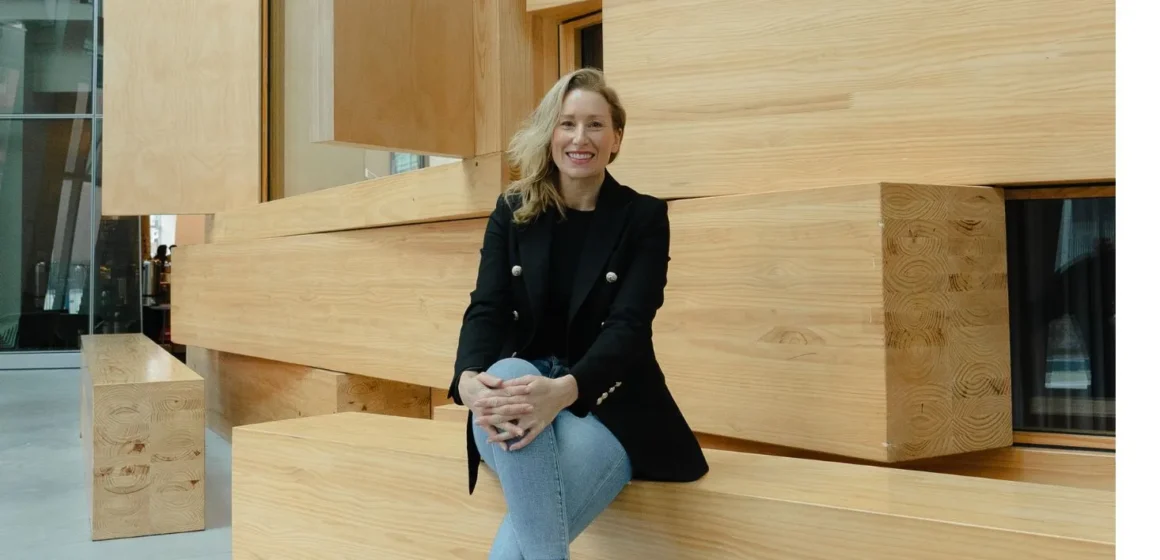Peak Medical is on a mission to redefine home healthcare for patients undergoing joint replacement surgeries, targeting a global market of 582 million people by delivering high-quality and accessible care. At the heart of its innovation is BIBO (Better In Better Out), a cutting-edge digital medical software designed to support patients through both pre- and post-operative care with clinical accuracy.
Founder and CEO Hayley Saddington recently showcased BIBO at SmartCompany’s “The Pitch” competition in Melbourne. The judging panel included industry leaders such as Maxine Lee, Chief Operating Officer at Skalata VC, and Mark Newman, LaunchVic’s Startup Programs Manager.
Although BIBO didn’t take home the grand prize—won by housing design startup Oltre—the software’s impact was unmistakable. Saddington emphasized that BIBO serves as a comprehensive recovery tool for patients, functioning as an app prescribed by surgeons or physiotherapists. The app guides patients through exercises well before surgery, ensuring a precise and safe rehabilitation process.
“Unlike other apps, BIBO provides real-time feedback during exercises,” Saddington explained. “If a patient’s movement is off or if they’re performing exercises too quickly, BIBO makes real-time adjustments to help them stay on track.”
This interactive element ensures patients engage muscles correctly, even during pain, improving their rehabilitation outcomes. If a patient hesitates due to discomfort, BIBO assesses the situation, identifies the issue, and provides safe guidance to continue.
Beyond exercise guidance, BIBO also monitors important metrics like wound healing, raising alerts if any irregularities are detected. “If something looks off, the app prompts patients to see a healthcare professional early, potentially avoiding follow-up surgeries or more serious complications,” Saddington added.
Expanding Capabilities and Global Market Potential
Currently focused on knee injuries, BIBO is expected to expand into other joint areas. “We’re targeting knee injuries, including soft tissue damage like ACL tears, but our expansion plans include hip, shoulder, spine, and even pediatric sectors,” said Saddington.
The company sees significant market potential, particularly in the Asia-Pacific region. “There’s an untapped market of 1.4 billion people in Asia-Pacific for this technology, and no one else is doing what we’re doing,” Saddington pointed out.
Since launching in 2020, Peak Medical has made substantial strides. The team now includes seven members, a mix of engineers and clinicians, and they’re actively pursuing major milestones. “We’re starting a regulatory pathway with the Therapeutic Goods Administration (TGA), and we’re about to kick off a pilot trial with a hospital,” Saddington said.
Tackling Financial and Investment Challenges
One of Peak Medical’s early hurdles was determining who would fund the service. “We tackled that by partnering with Bupa and other health funds and hospitals to answer key questions: ‘Will you pay? How much will you pay?’ and we’ve successfully validated those,” Saddington explained.
Securing investment for health tech also proved challenging due to perceived risks and long timelines. “Health tech can be tough for some investors to grasp. They see the risks and market entry delays, but it takes a specialized investor who truly understands the space,” Saddington said.
Fortunately, Peak Medical has attracted knowledgeable backers, including the Cerebral Palsy Alliance and esteemed professors from the University of New South Wales (UNSW), who bring expertise in both technology and healthcare.
With its innovative approach and strategic partnerships, Peak Medical is poised to continue shaping the future of home healthcare, offering patients a safer, more efficient path to recovery.


Leave a Reply